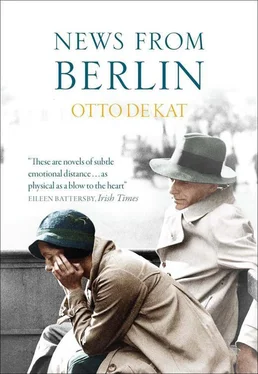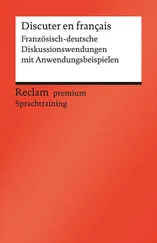“We don’t trust him, Verschuur” – anything of that provenance would be brushed aside. It was wasted on Morton.
Every fibre of his being rebelled against agreeing with Kate. Clearly, she needed to put things in perspective, he was sufficiently familiar with the Gestapo to know how they inflated the flimsiest evidence into a crime.
Yet he admired her for her outright rejection of violence and her ability to empathise with nameless Russians. For her strength of character in putting her daughter in the balance. She was discounting Emma, yet she could not abide the thought of other people’s daughters losing their lives. She did not know what she was saying.
As he stood beside her, his impulse was to cover her mouth with his hand, out of a tenderness he had not felt for a long time. He wanted to interrupt, prevent her voice from reaching his ears, shield Emma from her mother’s powers of persuasion. Everything she was saying was true. Kate, you are right. But what you want is impossible. They won’t listen, it would all be for nothing. That operation will go ahead regardless, but Emma would pay the price, believe me, I know what I’m saying. There’s no stopping them, Kate, we can’t save those millions of people. You can’t save people who don’t save themselves.
When she had said her piece she looked away, waiting for his answer.
It was still daylight when they entered the Lyons Corner House. The sun had set, leaving a swathe of pink in the dark blue sky, while the barrage balloons resembled party decorations on a distant ceiling. An attack by the Luftwaffe could not have been further from people’s minds. Summer filled the streets. Blackout time was not for a while yet, and from the open windows wafted the sound of voices and radio music. The illusion of a weekday like any other, the way things used to be.
Kate and Oscar said little. After their conversation on the balcony, silence had ensued. Their disagreement was total. Kate had wept, something she very rarely did, and after a long pause Oscar reiterated all he had said before. Emma stood like a ghost between them. Her name was the linchpin of their argument.
Emblazoned in his memory was the afternoon which had haunted him for so long, and which now came rushing back. It was late August, and they were taking Emma to stay with her grandparents in Leeuwarden. Kate and he were to be posted to Washington for a minimum of four years. Emma was twelve, and of an age to start secondary education. Until then she had accompanied them on various postings, which meant contending with a succession of schools. To continue in this way would not be fair on her, they decided, whereupon Kate’s parents had promptly offered to have their granddaughter live with them.
Emma had kept her eyes on him, rather than on her mother. Wasn’t he the one who had promised her over and over that he would take her with him wherever he went, even to the ends of the earth?
A child’s wish list, a father’s little white lie.
Kate had hugged her mutely, while her parents hovered in the background, equally tight-lipped. Oscar had stood there alone, facing the jury, saying they would be back on leave in a year’s time, wanting to explain once more the inexplicable.
Emma had not shed a tear, nor had she waved back when he waved his hat at her from the far end of her grandparents’ hallway. She had not even walked them to the door. Her refusal to return his wave had been the bitterest regret. That empty moment, the irrevocable rift between them.
The Lyons Corner House was quite crowded, but they managed to find a vacant table. The evening’s fare was chalked up on an old blackboard. London appeared to have been put on rations.
“You’d think we were under siege, judging by that menu.”
Kate stroked the back of his hand. Gradually, they warmed to one another again: time-honoured reflexes of a long, shared life.
“Yes, as if it’s your turn to eat today and mine tomorrow.”
Kate laughed softly, and met his gaze at last.
“Perhaps they’ll make an exception for us, so we can both order?” Their warmth rose by a few more degrees.
She asked after his daily life in Berne, which he had barely mentioned in his letters, he asked after hers, which she had not mentioned at all. She told him about the Richmond, and what she did there as “head of subtle affairs”. And about the doctor who reminded her of Peter Henning.
“Peter Henning?”
“Don’t you remember that night in the bar of the Esplanade Hotel, when he and I had been to the Olympic Games?”
“And you looked like a schoolgirl with her first boyfriend – of course I remember. What has become of him, do you know?”
She did not know. She was amused by Oscar’s remark, and wondered whether she might have been a wee bit sweet on Peter after all.
And finally she told him about Matteous. How she had visited him, tentatively, taking two steps forward and one back in cautious progression. She described Matteous in unearthly terms. Oscar imagined someone who could have been her son, a black brother to Emma. Or, stranger still, a primordial loved one, ageless, non-existent except in her dreamed past. A selfless, undemanding love.
Kate’s voice was strong and clear. Oscar listened with close attention, now and then asking a question about the boy.
“All I want is to write a letter.” That was what he had said. The deepest wish of a refugee, of someone who had left home forever, only to return there in his nightmares. To write a letter. Letter-writing was so integral to Oscar’s existence that the enormity of that wish took a while to sink in. A letter as a weapon against the senselessness, against the devastation, against the oblivion, a letter as a rite of exorcism, as proof of life reclaimed.
Kate said nothing. The blackout curtains had now been drawn across the tall windows of the dining hall, and the tables were lit by sparse chandeliers. Two waiters glided through the décor, bearing trays with wine-filled glasses. Rationing did not extend to wine, apparently. Oscar registered the scene. He kept having to remind himself where he was, and why he was there, and that June 22 was almost upon them.
For heaven’s sake, Oscar, it’s not too late. Her exasperation still rang in his ears. He was shocked by Kate’s refusal to see his side of the argument, while feeling utterly disarmed by her account of Matteous.
“Do you ever think of Roy?” A loose cannon, a question out of the blue. Had he actually asked her that? He never mentioned Roy, and Kate never mentioned him either, Roy had become an irrelevance, a sunken corpse, rejected, pulverised, secreted. Where on earth did that question come from, who started this? It was against all their rules. Had she jumped to her feet and left, he would have understood, had she looked angry or sad, or ordered something from a passing waiter, or ignored him by asking a counter-question, had there been any such reaction, he would have understood. How idiotic to raise the subject now, at this hour, after so many years, when they should be discussing something so very different.
The past is never truly past, he thought.
But Kate remained seated, unfazed by Oscar’s question. Her whole life had been lived within a heartbeat of the answer.
The years with Roy, they were gone, but still on permanent standby, filtered, washed clean, as light as a feather, and of an extreme, unassailable tenderness. But what of it, there was no footstep light enough to tread the filmy foundation of happiness laid back then. Oscar, you are too heavy, my base cannot support your weight. That is why I never mentioned those days; it was not for your sake, but for my own. Yes, I do think of Roy sometimes, I never stopped thinking of him. But since meeting Matteous, when I lie awake in the early hours and the world’s still asleep, I’ve been back, back in Rome, back in his arms. That’s not being unfaithful, Oscar, it’s being faithful. It’s because of Matteous; it has to do with a feeling that has come over me lately, an almost animal sensation of caring about another person with reckless dedication. His skin, his eyes, the way he gropes for words – they blew me away. Roy in the shape of a black boy: what an extraordinary image to conjure up in middle age. Everything from the past repeats itself, only not ever in the same form. Roy is gone, though even that is open to interpretation. He’s still there, somewhere in my body. I can touch him in the small hours, or perhaps he touches me.
Читать дальше












